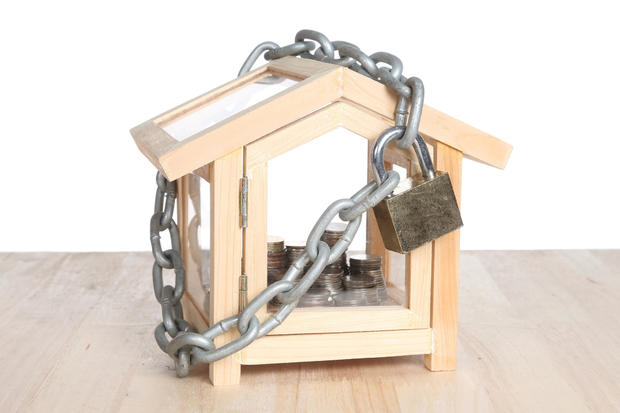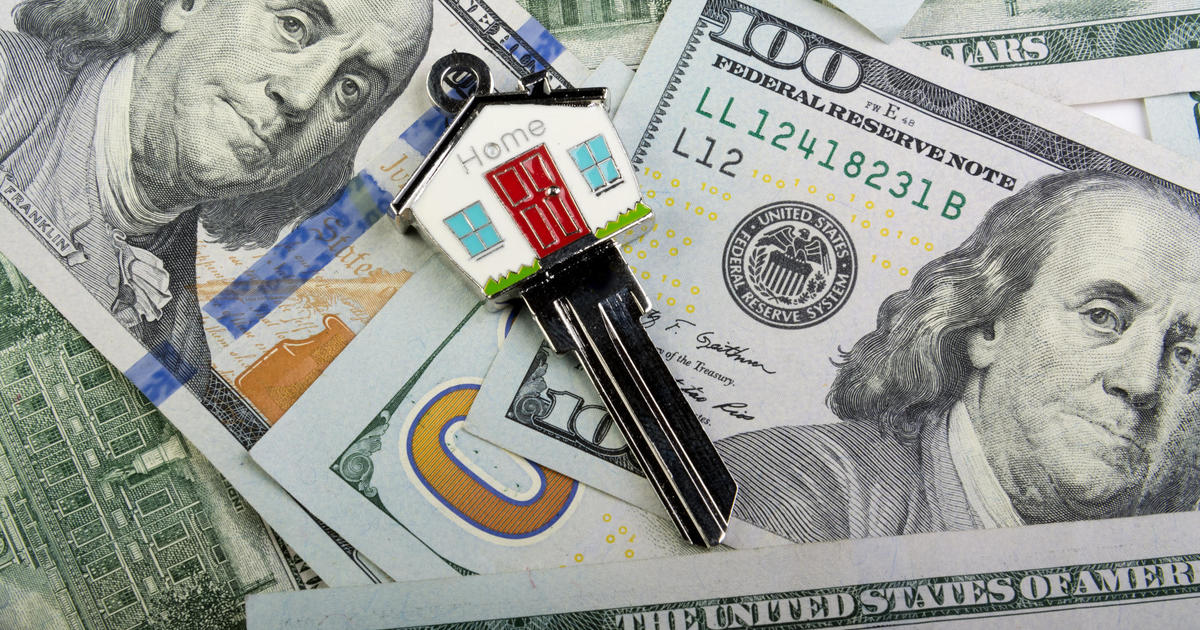Should you lock in your mortgage rate before the April Fed meeting?
The Federal Reserve's Federal Open Market Committee (FOMC) meetings happen regularly, with the next meeting scheduled for April 30, 2024 through May 1, 2024. These meetings are important because the Federal Reserve typically discusses the state of the economy and potential changes to monetary policy. That means the Federal Reserve usually makes federal funds rate decisions at these meetings (whether it will increase, decrease or leave its target rate the same).
That's important because the federal funds rate is the primary benchmark rate that consumer interest rates (like mortgage rates) are based on. So, if you're in the market for a new home, it may be wise to lock in your mortgage rate before the April FOMC meeting.
Lock in your mortgage rate now before any potential hikes materialize.
Should you lock in your mortgage rate before the April Fed meeting?
When you're in the market for a new home, and you're pre-approved for a mortgage, you may have the option to lock your mortgage rate in before you close on the home. That may prove advantageous, especially when mortgage rates are on the rise (which has been the case as of late). Then again, there are valid reasons you may want to hold off on locking your mortgage rate in as well. Here are a few reasons why you may (and why you may not) want to lock in your mortgage rate before the next Fed meeting:
Why you may want to lock in your mortgage rate
Perhaps the biggest reason to lock in your mortgage rate before the April Fed meeting is to guarantee that your rate won't rise. That's a valuable prospect at the moment as 30-year mortgage rates have already climbed from 6.82% on April 4, 2024 to today's average rate of 7.29% - nearly a half a percentage point difference.
Those rates are largely up as a result of a strong recent jobs report and inflation growth. Should the Federal Reserve suggest it will delay rate cuts following this data, mortgage companies could respond with further increases to the rates they charge. But, if you lock in your rate before the next Fed meeting, you won't be subject to those potentially higher mortgage rates.
"If you are in the process of buying a house and have already made a commitment, then I believe it would be prudent to lock in your rates at this point," explains Aaron Cirksena, founder and CEO of the financial planning firm, MDRN Capital.
It's worth noting that locking in your rate can put more control in your hands. That is, as long as the rate you lock in has a float-down option. If it does, and the average mortgage rate rises, you won't be subject to a higher mortgage rate when you purchase your home. On the other hand, if rates fall, your float-down option means you can take unlock your current rate and secure the new, lower one, instead.
Finally, mortgage rates are cyclical. So, rates will go through upward and downward cycles. But, locking in your mortgage rate, and even closing on your home, doesn't necessarily mean you'll be stuck paying the rate you locked in or closed on until you pay your home off. Instead, you can refinance your home later, when a downward mortgage rate cycle comes into play.
Take control of your mortgage rate by locking it in now.
Why you may not want to lock in your mortgage rate
Though it may be wise to lock in your mortgage rate before the April Fed meeting, there are a few reasons you may want to hold off on locking your rate in.
- Rates are high: The federal funds rate is frozen at a 23-year high. Though the federal funds rate doesn't dictate mortgage rates, it is commonly used as a benchmark for them. So, mortgage rates are high at the moment, too.
- Rates could fall: The Federal Reserve typically moves the federal funds rate target in response to inflation. When inflation is high, rates tend to rise and when inflation cools, rates tend to fall. So, if inflation cools ahead, lower mortgage rates could be on the horizon. "There is always a likelihood that the Fed pivots or offers guidance in the next meeting that sends rates a bit lower," says Cirksena. Though, that likelihood may be minimal in today's inflationary economic climate.
- Locks are limited: Most lenders make it possible to lock your rate in for anywhere from 30 to 120 days. If you haven't started the house hunt, or are at the very beginning of it, a 30 to 120-day lock could rush your shopping process - which may result in you making rash decisions in an attempt to beat the rate lock deadline.
Compare your mortgage options today to find out what rate you'll qualify for.
The bottom line
If you're in the market for a new home, deciding whether or not to lock in your mortgage rate before the April Fed meeting can be tough. On one hand, locking in your mortgage rate guarantees that it won't climb ahead. And, if you have a float-down option, you'll be able to take advantage of a lower mortgage rate if rates do fall before you close on your home. Not to mention, you can always refinance later if more appealing mortgage rates come to fruition.
On the other hand, locking in your mortgage rate may not be the best option in today's high interest rate environment. After all, rates could fall ahead. And, since rate locks are relatively limited, locking in yours could rush your house hunting process.
If you're not sure whether locking in your rate makes sense or not, get in touch with a mortgage expert now to discuss your options.





